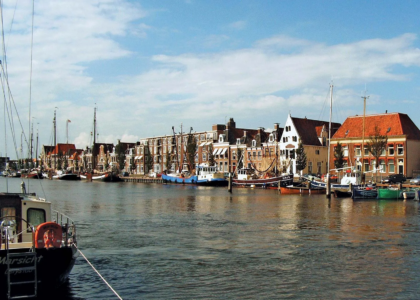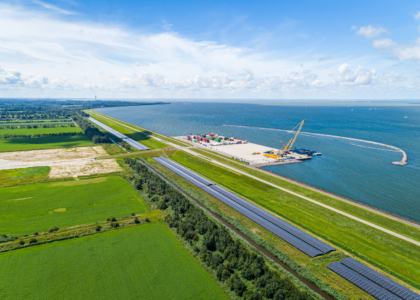Considering a transition from the US to the Netherlands? Whether it’s for work, study, or starting a new business, relocating to a European country like the Netherlands can be a life-changing decision.
We’re here to guide you through this process, providing insights into Dutch immigration laws, various permits, and how they apply to US citizens.
Understanding the Dutch Immigration Law
To make your new Dutch residence a reality, the initial step involves understanding Dutch immigration laws and obtaining a residence permit. Several permit options exist for those seeking to live and work in the Netherlands. A proficient immigration attorney can provide further details and guide you through the process.
Relocation Considerations for U.S. Citizens
For those U.S. citizens planning to make the leap to Europe for the first time, the decision to move to this country can be significant. Often, these choices are motivated by economic factors or career opportunities. The potential to thrive professionally in cities like Amsterdam offers an attractive proposition.
There exists a special accord between the Netherlands and the United States, known as the Friendship Treaty, which simplifies the process of establishing a Dutch business for American investors. As per the treaty, obtaining a residence permit is facilitated for American investors meeting the minimum investment requirement (currently set at 4,500 euros).
The DAFT visa, courtesy of the Dutch American Friendship Treaty, is a popular option for US citizens aspiring to start a business or work independently in the Netherlands. This visa allows US applicants to stay in the country for two years, given they meet the investment requirements. Reach out to our team for more detailed information.
Key Takeaways:
- Entry Visa: Not required for stays up to 90 days.
- Temporary Residence Permits: Available for work, business, study, and family unification.
- Required Documents: Valid passport, no prior criminal record, permit-specific documents.
- Time for Permit Approval: Approximately 90 days.
- Investor’s Residence Permits: Available under the Dutch-American Friendship Treaty (DAFT).
- Permit Duration: Typically 1 year, up to a maximum of 5 years.
- Dependents: Permitted to accompany the permit holder, depending on the permit type.
- Naturalization: Possible after cohabitating for 3 years with a Dutch spouse or registered partner.
- Permanent Residence: Can apply after a lawful stay of 5 years.
- Dual Citizenship: Mostly prohibited, with few exceptions.
- US Pension in the Netherlands: US Social Security benefits still applicable.
- Taxes: Taxed at Dutch personal income tax rates. No double taxation on the same income. US citizens living in this country may have to file two tax returns, one in each country.
- Navigating this process may seem daunting, but with the right preparation and understanding of the Dutch immigration process, your transition from the US to the Netherlands can be a smooth and rewarding journey.
Essential Steps to Transition from the US to the Netherlands
There are several critical tasks to accomplish when planning your relocation to the Netherlands:
- Town Hall Registration: Usually, it’s obligatory to register with the local municipality within five days of arriving in the Netherlands, especially if your stay extends beyond four months. This is performed at the town hall in your residing area, and an address is required during this stage. For the city of Amsterdam, registration with the Gemeente is required;
- Citizen Service Number (BSN): This unique identifier for individuals residing in this country is obtained post-town hall registration. It’s crucial for tasks like opening a bank account, securing employment, and enrolling in the healthcare system;
- Opening a Bank Account: Opening a local bank account is necessary for salary deposits and making payments, as this is a preferred payment method. Choose a banking package that suits your requirements. Our local migration agent can assist you, especially if language barriers become an obstacle;
- The DigiD: This online ID provides access to several government services and websites, necessary for tax purposes, benefit collection, and certain types of allowances. The DigiD is tied to your BSN. You can apply for it online once you have your BSN and a registered address;
- Driving License: For non-EU citizens, the driving license remains valid for six months post-municipality registration. If you intend to drive post this period, you need to take the required exams.
These elements merely scratch the surface of the relocation process, and for more detailed insights, our immigration experts are at your service.
Residence Permits for US Citizens Relocating to the Netherlands
Although US citizens desiring to move to the Netherlands don’t need a Dutch provisional residence permit (MVV), a residence permit becomes necessary when you plan to relocate. A permanent residence permit can be applied for once it becomes available:
- If you’re planning to work or reside in the Netherlands, a residence permit is essential. A special category is available for highly skilled migrants, with opportunities for intra-company transfers, like branch managers. Their employer will also need to apply for a Single Permit, integrating both the residence permit and the work permit;
- Once you possess a residence permit, you can extend it as required. After lawfully living in this country for five years, you may apply for a permanent residence permit through a separate application process with the IND.
To apply for Dutch citizenship, a lawful stay in the country for at least five consecutive years with a valid residence permit is mandatory. Additional naturalization criteria, like Dutch language proficiency, also apply. For detailed information and assistance with citizenship applications, feel free to consult with our team.
Key Takeaways:
- Town Hall Registration: Mandatory within five days of arrival for long-term stay;
- Citizen Service Number (BSN): Required for various tasks like opening a bank account, securing employment, and healthcare enrollment;
- Bank Account: Required for salary deposits and payments;
- DigiD: Mandatory for tax purposes, benefit collection, and access to certain allowances;
- Driving License: Valid for six months post municipality registration for non-EU citizens;
- Residence Permit: Required for working or residing in the Netherlands;
- Permanent Residence Permit: Can apply after five years of lawful stay in this country;
- Dutch Citizenship: Can apply after a lawful stay of five consecutive years;
- Relocating from the US to the Netherlands requires careful planning and understanding of the country’s administrative systems, but with the right guidance and preparation, you can navigate these processes successfully.
The Journey of American Entrepreneurs in the Netherlands
The Dutch American Friendship Treaty lays out several criteria for Americans seeking residence in the Netherlands:
- Basic Requirements: The applicant needs to fulfill a set of general conditions, detailed later by our immigration consultants;
- Nationality: The applicant must be an American citizen;
- Business or Investment: The applicant either manages and runs a business in the Netherlands or has invested a minimum capital in a firm. American representatives of a company should occupy a key position within the firm. An alternative is for the American applicant to be involved in a liberal profession, public duty, or healthcare sector role.
Costs associated with securing Dutch residency via the Dutch American Friendship Treaty include:
- Maintain sufficient capital in the business (if opting to start a company) or garner a gross profit per month as a self-employed individual, amounting to at least €1,273.71 (including holiday allowance) – this figure is applicable from 1 January to 30 June;
- The application cost is €1,416;
- For applicants with a pre-existing residence permit start-up, application costs reduce to €379.
American entrepreneurs operating independently in the Netherlands must meet specific investment requirements:
- Interest: The business or activity must contribute significantly to the Dutch economy, implying the product or service must be innovative and meet other criteria;
- Minimum Points: Applicants are evaluated on a point-based system considering their personal experience, business plan, and contribution to the country;
- Registration: The business must be registered with the Trade Register with the Dutch Chamber of Commerce;
- Licensing: The applicant must possess the proper licenses to operate the business/profession;
- Income: Satisfactory income criteria must be met, as outlined in the business plan;
- Additional requirements apply to service providers in individual healthcare.
General Conditions for Dutch Residence Permit Applicants:
- Possession of a valid passport; children can be included on one of the parent’s passports;
- Signing the antecedents certificate;
- US citizens are exempt from the tuberculosis test requirement. Documents for the self-employed residence permit or the Dutch American Friendship Treaty must be legalized and translated into Dutch, English, French, or German.
Start-ups in the Netherlands by American Investors
A viable residency route for American entrepreneurs aspiring to move to the Netherlands involves starting a business in the country as a start-up entrepreneur. As with the conditions above, a crucial criterion is to present an innovative start-up idea.
The “start-up” residence permit enables American investors to initiate a company under the mentorship of an experienced facilitator – a feature not mandatory in the previous investment route. This support is part of the country’s commitment to bolster start-ups.
Conditions for American Investor start-ups include:
- Facilitator: The facilitator is a financially stable business mentor with extensive start-up guidance experience, able to provide support without holding a majority interest in the start-up or being a relative up to the third degree. The collaboration is confirmed via a signed agreement;
- Innovative Project: The product or service should be innovative;
- Business Plan: The entrepreneur must present a detailed plan for the start-up;
- Financial Means: The applicant should demonstrate sufficient financial resources to reside and live in the country.
With its competitive economy, favorable location, thriving business climate, multilingual workforce, and straightforward company incorporation process, the Netherlands offers an attractive business landscape for US entrepreneurs. Our immigration specialists can provide more detailed information on obtaining a residence permit for opening a start-up.
Key Takeaways:
- Basic Requirements: General conditions, American nationality, and running or investing in a business;
- Costs: Maintain sufficient business capital, and pay the application fee;
- Business/Investment Requirements: Interest, minimum points, registration, licensing, income;
- Start-Up Conditions: Facilitator, innovative project, business plan, financial means;
- General Conditions for Dutch Residence Permit Applicants: Possess a valid passport, and sign the antecedents certificate;
- With the right guidance, American entrepreneurs can successfully navigate the intricate processes of establishing a business or start-up in the Netherlands.
How to Relocate to the Netherlands from the US: Step-by-Step Guide
You should begin by researching extensively about life in the Netherlands, its culture, economic prospects, and local customs. Also, explore the different cities to determine the most suitable place for your lifestyle and aspirations. After that, follow these next steps:
- Visa and Permits: Determine the most appropriate visa or permit option for your circumstances. Options range from work and study permits to entrepreneur or investor visas under the Dutch American Friendship Treaty;
- Apply for a Residence Permit: If you’re planning to live and work in the Netherlands, applying for a residence permit is essential. Start-ups and entrepreneurs have a distinct set of criteria to follow;
- Town Hall Registration: Once arrived, ensure to register with the local municipality within five days, particularly if your stay is longer than four months;
- Citizen Service Number (BSN): After registering with the town hall, you will receive your unique BSN. This number is vital for various tasks such as opening a bank account, securing employment, and enrolling in the healthcare system;
- Opening a Bank Account: Set up a local bank account for receiving your salary and making payments, as this is the preferred payment method in this country;
- Obtain a DigiD: An online ID necessary for tax purposes, benefit collection, and access to certain types of allowances;
- Driving License: If you plan to drive in the Netherlands and are a non-EU citizen, your driving license remains valid for six months post-municipality registration. Post this period, you need to take the required exams;
- Housing and Accommodation: Find suitable housing and arrange your accommodations. This can range from renting an apartment to purchasing a home.
Lastly. don’t forget about your healthcare registration. Namely, make sure to register with a local healthcare provider. You may also want to look into any additional health insurance coverage necessary.
Concluding Thoughts
Making the move from the US to the Netherlands is a significant step, one that involves careful planning, research, and understanding of local laws and customs. However, with a strong support system and a clear understanding of the immigration process, this transition can be smoother and more rewarding.
Whether you’re moving for work, starting a new business, or pursuing studies, this country offers a wealth of opportunities and experiences. From navigating the Dutch immigration law to understanding the implications of the Dutch American Friendship Treaty for American investors, our guide seeks to provide comprehensive insights into the process.
Remember, while the steps to relocating may seem daunting at first, with proper guidance and determination, your journey from the US to the Netherlands can be a truly enriching experience, marking the beginning of an exciting new chapter in your life.















